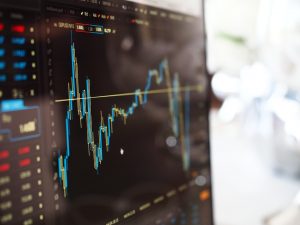 Trading in contracts for difference (CFDs) offers many advantages for the experienced investor.
Trading in contracts for difference (CFDs) offers many advantages for the experienced investor.
This is not to say that CFD trading can’t be undertaken successfully by novice traders: indeed, it’s very easy to get started, requires a relatively modest initial financial outlay, and the basic principles can be easily understood. However, there is a high degree of risk, which the more experienced investor is better placed to handle, and is more likely to accept.
The main risk is of losing a large amount of money rapidly through over-leveraging your position. This is a mistake typically associated with the novice investor. The more experienced trader will guard against this by not risking more money than they can afford to lose. They will only stake a manageable proportion of their total trading capital on any one position, and will have developed a long-term trading strategy that will allow them to ride out short-term losses.
Margin trading
In fact, although it represents the greatest risk for the inexperienced trader, the possibility of leverage in the form of margin trading is one of the main appeals of CFDs. One can buy a large amount of contracts while only putting down a fraction of their worth upfront. So, if a trade is worth £1,000 and a margin factor of 10% is offered, one only needs to pay £100 initially. This gives you a great amount of leverage as if the underlying asset increases in value, you can sell the contract for its total value. However, if it loses value, you will also be liable for the total amount – hence the risk.
Flexibility
Another great advantage of CFD trading is its flexibility. It is possible to profitably trade CFDs in both a rising and a falling market. In traditional investing, you purchase an asset and profit only if it increases in value. However, there are times when it is clear that assets of whatever kind are going to lose value, at least in the short term. Because in CFD trading, you are only buying a contract representing the difference in price between your opening and closing position, you can make money on an asset losing value as well as when it gains.
Investors can go long on a stock by purchasing a CFD at its “buy” price if they think it’s going to increase in value. If they think it’s going to lose value, then they can go short by purchasing at its “sell” price. This gives far greater flexibility and the potential for profit in all economic situations.
Hedging
Following on from this is the possibility of using CFDs to hedge against short-term losses in other assets you hold. For instance, you might have shares in a company that you foresee is about to hit a rocky patch. You have every confidence that the company will recover eventually, and want to hang on to your shares as a long-term investment. Nevertheless, you’re aware that for the foreseeable future, the value of those shares is likely to plummet. By going short on CFDs for those shares, you can make a profit on their loss in value, closing your position before their eventual upturn and covering your losses in the meantime.
Broad range of markets
CFD trading is available on a broad range of markets, from stock (equity) and stock indices to forex, commodities, cryptocurrency and pretty much anything you can think of. In fact, CFD trading can be carried out on over 16,000 different markets, and all from one web platform or mobile app. This means that investors can trade globally, 24 hours a day and have almost unlimited options.
CFD brokers have a wide range of trade sizes available to suit all trading styles and account types. While new traders will want to start out with small lot sizes until they have developed a successful strategy, the more experienced trader often finds that larger sizes give them a greater degree of freedom and more potential for profit.
CFD trading is accessible, quick and easy. A solid risk management strategy can be used to guard against potential losses, as well as judicious use of the stop order so as to close your position if losses reach a certain level. Margin trading allows your capital to go further, and the flexibility of CFDs means that the possibilities for making a profit are not limited by the state of the market. The number of markets available also means that CFD trading has a wealth of advantages over more traditional forms.
